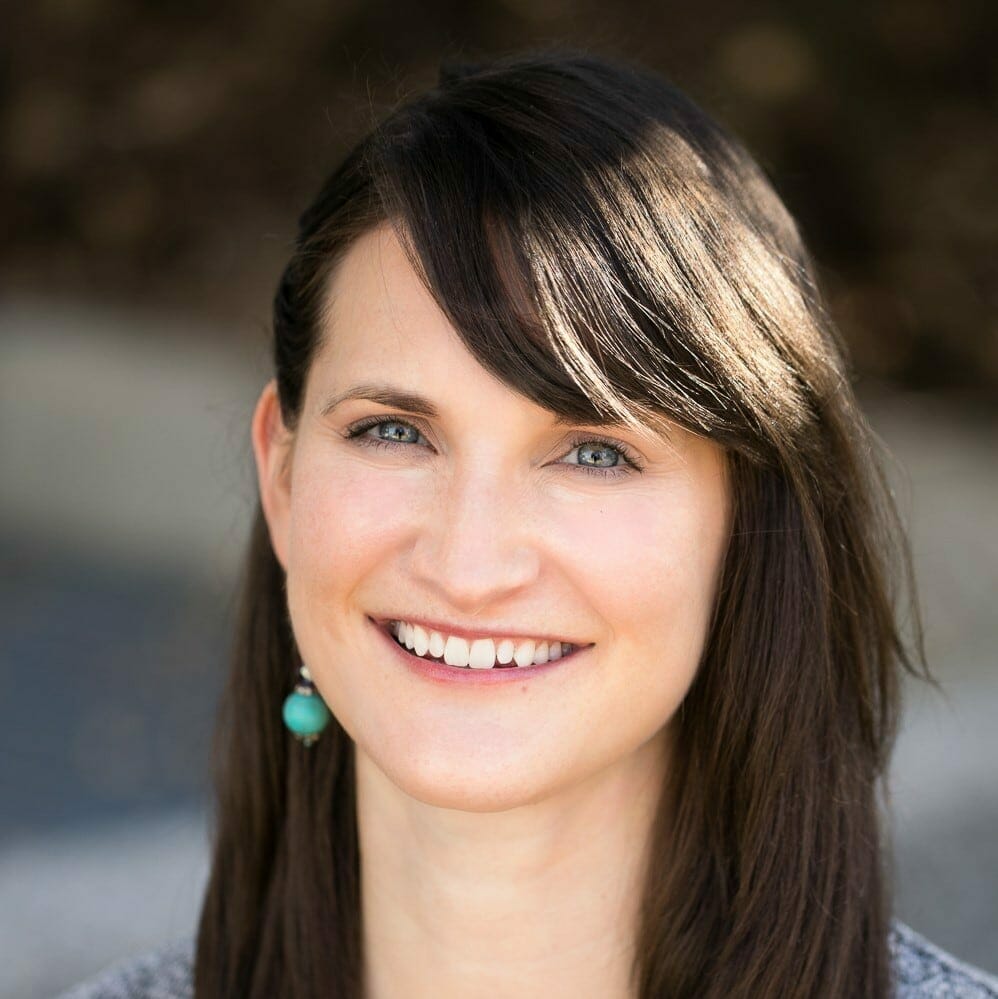Learn to create a center for innovation that serves institutional and local economic goals.
Driven by the rapidly changing needs of employers, higher education is seeking to make its spaces more reflective of a work environment that places a premium on innovation and entrepreneurship. Campus innovation centers provide an impetus of forward-thinking learning with students in mind, creating stronger opportunities for student-faculty interaction, enhancing the academic environment, and fostering success.
Learn how you can develop an innovation center on your campus that can serve as both an academic hub and gateway to the surrounding economic and entrepreneurial environment. Focusing on centers that facilitate multidisciplinary learning, foster industry partnerships, and drive entrepreneurship among students, we will focus on the key elements to establishing an innovation center on your campus:
- Establishing a vision for your center
- Scanning the market and identifying strategic partnerships
- Connecting students and faculty to the center’s mission
- Understanding IP and tech transfer considerations
- Developing your center’s leadership
- Funding and marketing your center
Site Visit: The da Vinci Center at Virginia Commonwealth University
A collaboration of VCU’s Schools of the Arts and Business and the Colleges of Engineering and Humanities and Sciences, the VCU da Vinci Center is a unique collegiate model that advances innovation and entrepreneurship through cross-disciplinary collaboration.
The academic and other program offerings of the da Vinci Center aim to create T-shaped individuals: students who are anchored in a discipline and have the capacity and openness to span across disciplines.
Students participating in the da Vinci Center view innovation and entrepreneurship from multiple disciplinary perspectives, and thus, are prepared for the 21st Century workforce by more robustly approaching the innovation/entrepreneurship endeavor.
Post-Conference Workshop: Integrating Innovation and Entrepreneurship into Your Academic Curriculum
Centers for innovation can be an excellent source of learning and inspiration for students, but integrating innovation and entrepreneurship into the curriculum can present unique challenges.
Our faculty for this workshop, Marlo Rencher, Executive Director of the Center for Innovation and Entrepreneurship with Cleary University, and Garret Westlake, Executive Director of the da Vinci Center with Virginia Commonwealth University, have both paved the way at their institutions in incorporating and promoting innovation through curriculum. Join us to learn how to integrate innovation and entrepreneurship into the curriculum in the context of a 21st century innovation economy and walk away with best practices for designing or enhancing your own curriculum for your unique institutional context.
Come With Your Team to Maximize this Learning Experience!
You learn more when a team from your institution can discuss and prioritize according to your strategic vision. We suggest bringing a team of representatives from the following divisions: academic leadership, student affairs, faculty, facilities planning and management, and corporate and foundation relations. When you register three or more colleagues you can save over 15% on registration.

Agenda
Registration fee includes: Full access to all conference sessions and materials, access to the networking reception on Wednesday, breakfast and lunch on Thursday, and breakfast on Friday, as well as refreshments and snacks throughout the conference.
In this opening session, we will provide a high-level overview of innovation and entrepreneurship in higher education. We will then explore and analyze the three different types of innovation centers and discuss how different institutions are implementing them:
- Facilitate multi-disciplinary learning
- Foster industry partnerships
- Drive student entrepreneurship
The first, and perhaps most critical, step in creating a center for innovation on your campus is establishing a vision for it. We will explore why establishing your vision is important, provide examples of vision statements from other centers, and provide working time to develop your own vision. As a group, we will discuss:
- Key decisions in creating an innovation center
- Developing a strategic marketing plan
- Benchmarking against aspirant and peer institutions
- Short and long-term metrics for measuring your success
A significant challenge facing any innovation center is identifying appropriate partners within your community and developing a mutually beneficial relationship. We will discuss key considerations to scanning the market and identifying partners, such as:
- Marketing your center to the right niche
- Scanning your local environment effectively
- Balancing potential partner needs with your realities and resources
- Actively vetting prospective partners according to their goals and resource requirement
This session will also include working time with assistance from our experts, so you can begin working within your mission framework to strategize how you will identify and prioritize external partners.
At the heart of most centers’ success is a sincere connection to the student learning experience. We will address how your center can ensure strong ties to your students, including:
- Benefits of student and corporate engagement
- Best practices for curricular tie-ins
- Student innovation, entrepreneurship programs, or co-curricular events
- Keys to strong internship programs
Academic faculty are sincere contributors, if not centerpieces, of any successful center. We will address how your center can best incorporate faculty, including:
- Determining when and how to invite faculty into the development of your center
- Incorporating faculty as research partners and/or resources
- Leveraging faculty as curricular champions
- Discussing impacts to faculty productivity
This final morning session is devoted to understanding the importance of IP and Tech Transfer as it relates to your center. We will primarily focus on:
- IP overview when working with students, faculty, and staff
- How various types of IP and how are created within your center
- Ownership and licensing approaches for the entrepreneur
- Tech transfer and commercialization of IP
- Non-disclosure and other key agreements
A collaboration of VCU’s Schools of the Arts and Business and the Colleges of Engineering and Humanities and Sciences, the VCU da Vinci Center is a unique collegiate model that advances innovation and entrepreneurship through cross-disciplinary collaboration. The academic and other program offerings of the da Vinci Center aim to create T-shaped individuals: students who are anchored in a discipline and have the capacity and openness to span across disciplines. Students participating in the da Vinci Center view innovation and entrepreneurship from multiple disciplinary perspectives, and thus, are prepared for the 21st Century workforce by more robustly approaching the innovation/entrepreneurship endeavor.
Effective leadership is a critical component of a successful Center for Innovation. We will focus on key leadership skills required to champion, build, and maintain your center, which include networking and creative decision-making.
No center is complete without users. We will discuss best practices for marketing your center to all relevant users both on and off campus. Considerations during this session include:
- Understanding your capacity for growth and the marketing implications
- Seeking and securing appropriate donors for your center
- Differentiating campaigns for multiple audiences
- Leveraging marketing avenues within your local (and campus) community
This session will also include working time to provide you an opportunity to look at how your mission and market should drive the promotion of your innovation center. We will focus on:
- Positioning the mission of your center within a competitive local market
- Selling your center to your niche
- Developing an elevator pitch you can present at your own institution
Lunch is included for attendees with a Conference Plus Pass.
1:00 - 4:00 p.m.
Centers for innovation can be an excellent source of learning and inspiration for students. During this workshop we will explore how you can integrate innovation and entrepreneurship into your curriculum. Included in this workshop is insight into how your innovation center can play an important role in this process.
![]()
Speakers

Jon Garon
Dean, Shepard Broad College of Law, Nova Southeastern University
Jon is a nationally recognized authority on technology law and intellectual property, particularly copyright law, entertainment, and information privacy. He has been in legal education since 1991.

Allen Kunkel
Associate Vice President for Economic Development and Director of the Jordan Valley Innovation Center, Missouri State University
Allen’s focus is in connecting his campus to the local economic marketplace. During the event, he will help you develop ideas for reaching out to your local marketplace and establishing strong leadership for your center.

Robert Manasier
Entrepreneur-in-Residence/New Venture Manager, Innovate 518
Robert has expertise in intellectual property and tech transfer as they relate to campus innovation centers. He is a serial entrepreneur with experience in over 128 startups internationally.

Dr. Marlo Rencher
Diversity and Inclusion Entrepreneur-in-Residence, TechTown Detroit
Marlo is an entrepreneur, anthropologist, and educator with over two decades of experience in startup and small business development. She is TechTown Detroit’s Diversity and Inclusion Entrepreneur-in-Residence.

Dr. Garret Westlake
Executive Director of the da Vinci Center, Virginia Commonwealth University
Garret is heading the transformation of VCU into one of the nation’s leading universities for cross-disciplinary collaboration, innovation, and the inclusion of entrepreneurial thinking as a requisite skill for the innovation economy.

Dr. Stephen Whitehead
Associate Provost of Innovation, California University of Pennsylvania
Stephen can help you sell your innovation center both internally and externally. He is trained in Human Centered Design and uses these techniques to develop innovative ideas in higher education.
Questions About the Event?


Kate Poisson
Program Manager, Academic Impressions

